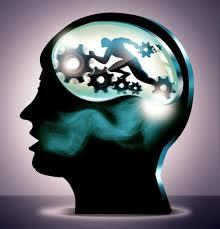Sport psychology is the practice of sport-specific mental skills to enhance performance; these skills are designed to assist athletes in achieving their peak performance. Sport psychology practitioners often refer to themselves as mental skills coaches or consultants (MSC), sport psychology consultants or specialists (SPC), or performance psychology specialists (PPS). In any case, practitioners in this field work with a wide variety of athletes, exercisers, or performers from youth to older adults, amateur to elite, and recreational to extremely competitive on issues around performance.
One common experience I have had throughout my work with athletes is identifying the sport or performance ‘issue’. Oftentimes athletes will come to their first mental skills session with the belief that their performance issues stem from a broadly defined psychological issue, for example confidence. Not uncommon I will have the following conversation in the first session:
- Me: So Sam, what brings you to our meeting?
- Sam: My coach says that I have an issue with confidence and I think he’s right. I definitely think he’s right. When I’m on the court, I’m not confident especially not like how my other teammates.
- Me: Can you give me an example?
- Sam: Well, for instance, last game. I was defending this player, she’s considered pretty good in the conference and I felt like I was on her, yet she fakes to the left and goes by me on my stronger side, my right. She then passes to her teammate who gets an open two (points). I felt so bad meanwhile my coach is telling me to get my head in the game. I feel like maybe if I was more confident I would have played her closer, you know?
This vignette spotlights Sam’s reported problem ranging from confidence, to technical defensive skills, focus, or even sport anxiety. All of which will need considerable probing and assessment to confirm and rule out prior to developing a psychological skills intervention.
Oftentimes athletes will come to their first session having self-diagnosed: relating their performance issues with various sport or performance psychological or social causes such as team dysfunction, performance anxiety, motivation, or even goal setting.
The purpose of this article is not around how to identify issues related to confidence but more so about the usefulness of MSC’s and the negative effect self-assessment can have on identifying and intervening on sport or performance related concerns. Just as with any sub specialty within the health professions, it is always best to speak with a professional within the sport psychology field about your athletic, performance, or exercise related experiences in order to obtain the best assessment. Keeping an open mind about the potential causes and factors that contribute to your performance, as well as documenting moments where you notice peaks and valleys in your performance can assist the MSC and you in better identifying an addressing your concerns in order to enhance your performance.
PureSportsNY:Leeja Carter, Ph.D
